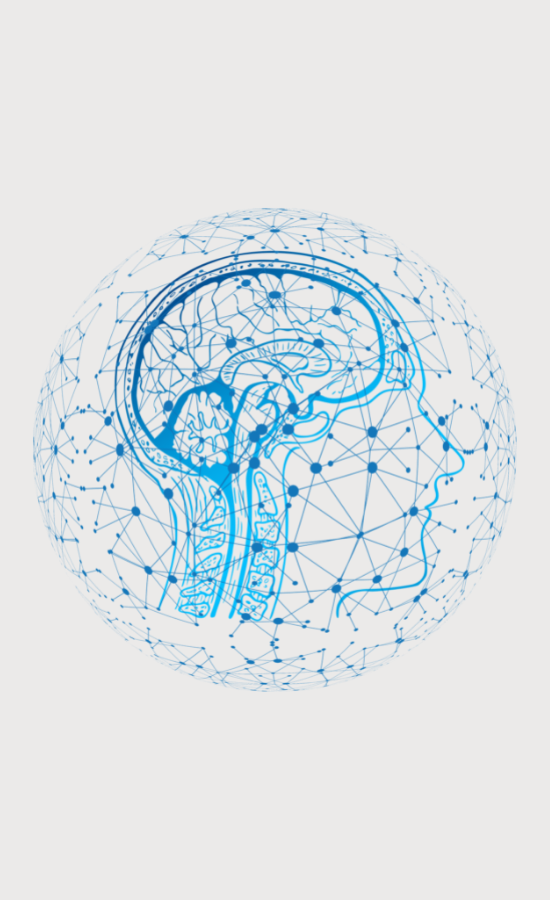Back To Work Brain Blues

FxMed Tech Support Team
Saying goodbye to the sun, sea and freedom after a relaxing holiday drenched in wine and chocolate, may be a little depressing. There’s nothing like a dose of the post-holiday blues to make you wish you’d chucked it all in and opened that yoga school in the Mediterranean…
Nevertheless, its back to the normal routine, yet rather than starting off in high gear, we may find ourselves feeling less than energized and suffering post-holiday/brain fatigue.
What is Brain Fatigue?
Brain fatigue can be described as mental fatigue, burnout or feeling tired. Some may write it off as depression or simply getting old. Brain fatigue is a symptom of the brain reaching a point of dysfunction and happens on a large spectrum of dysfunction. The spectrum ranges from momentary blips on the radar of simply needing a break, or needing to eat lunch, to more severe, devastating, life-altering neurodegenerative disorders. Brain fatigue, when it is not managed well, or goes on for too long, reflects wear and tear or neurological oxidative stress. In essence, brain fatigue is a symptom of neurodegeneration.
Key Players in Basic Brain Health
There are three major players that affect the brain. The first two affect the brain in the most profound manner and can affect it within seconds, minutes or hours. However, chronic, low grade problems with lack of oxygenation or poor blood sugar regulation frequently lead to a slow process of chronic inflammation. This is the more typical pattern we face. The third factor is all about life management. With any of these, too much or too little may pose issues. The brain needs balance.
- Oxygenation – how well is the brain getting and utilising oxygen? Poor brain oxygenation can be relatedto low iron, zinc, vitamin C, copper, B12, folic acid & B6 or issues related to anemia, blood production or blood loss. Blood sugar disorders can impair blood oxygenation. Blood pressure problems, (both low & high blood pressure) impact blood flow to the brain. In fact, having too low of a diastolic blood pressure has been shown to be related with brain atrophy. Cardiovascular problems such as cardiomyopathy, congestive heart failure, atherosclerosis, arteriosclerosis, & aortic stenosis, all affect oxygenation. Lung problems, including emphysema, COPD, asthma, lung cancer & others, also impact brain function. Sleep apnea is a common problem that clearly affects oxygenation. Other factors affecting brain oxygenation may be due to lack of physical activity or sedentary lifestyle, short, shallow, breathing through the chest rather than the diaphragm or belly.
- Blood Sugar – how well is the brain utilising blood sugar? Blood sugar regulation is affected by many different factors. It can be simple dietary imbalances to full blown concerns with insulin & leptin resistance and diabetes. Factors that affect blood sugar function include a high carbohydrate diet or high glycemic index intake, skipping meals, low protein, low fat/no fat diets or the wrong types of fats in the diet. Adrenal fatigue, adrenal insufficiency or elevated cortisol levels & stress induced elevated cortisol causes poor blood sugar regulation.
- Stimulation/Activity – is there too much or too little stimulation present? In this 21st century we are constantly exposed to a chronic state of being “on”, as we are exposed to a plethora of stimuli. For example constant exposure to technology and occupations that deal with all kinds of intense stimuli i.e. sounds, vibration & odours etc. Often it is simply doing more than we can realistically handle. Being “on,” plugged in, or “ready to act at a moment’s notice” provides chronic stimulation & stress. It may not be a job or environment that causes stimulation but can be related to foods, chemicals, medications or addictions. Food intolerances like gluten can cause neurological injury, while MSG, caffeine, nicotine, energy drinks & stimulant type medication can create adverse stimulation to the brain. Lack of sleep or insomnia contributes to excess stimulation. On the other hand, having a sedentary lifestyle, no physical activity and little mental activity, also causes the brain to become stressed. It is important there is balance with stimulation for the brain to thrive & operate at its best.



Back to Work Tips
- Spend time outdoors – Our brain loves nature. Multiple immune inflammatory markers have been shown to decrease in response to spending time outdoors. Many simple outdoor activities change our brain waves and give our brain some positive balance and a pleasant stimulation. This is especially vital when dealing with chronic pain & illness.
- Meditate – Taking time out to simply listen and feel our breath go in and out can re-energize us.
- Breathe – Many studies have shown breathing in fresh outdoor air can help relax the nervous system and re-energize the brain, improving focus and creativity.
- Memory, like muscular strength, requires us to “use it or lose it.” The more we work out our brain, the better we’ll be able to process and remember information. The best brain exercises are those that break our routine and challenge us to use and develop new brain pathways. There are some good apps / web sites available such as Luminosity or Fit Brains.
- Eating whole foods will best support our mental & physical health. Include low GL foods, antioxidants, green leafy vegetables, fish, iron & foods rich in B vitamins. Include midday snacks of carbohydrate (low GL), protein and quality fats to maintain blood sugar levels and fuel the brain.
- Coconut oil – Contains medium chain triglycerides (MCT) – a primary source of ketone bodies. Ketone bodies have been found to feed the brain, prevent brain atrophy and may even restore and renew neuron and nerve function in the brain after damage has set in.
- Omega-3 fatty acids in fish, especially DHA keeps the lining of brain cells flexible so memory messages can pass easily between cells. They also reduce inflammation and prevent the hardening of arteries in the brain.
- Excessive sugar & grain consumption are the driving factors behind insulin resistance. Insulin resistance is one of the most pervasive influences on brain damage, as it contributes to inflammation which will prematurely degenerate our brain. Consuming more than 25 grams a day of fructose can damage our cells by creating insulin & leptin resistance and raising uric acid levels.
- Sugar also suppresses brain derived neurotrophic factor (BDNF), which is important for proper memory function.
- Avoid artificial sweeteners – Aspartame, for example, is an excitotoxin that has adverse affects on brain cells.
Share:
Related Posts

Benefits of Creatine in Perimenopause and Menopause
Written by Maura MacDonald, MS, RD, CSSD | 2025 As we age, the notion is that we will inevitably become weaker. Not as mobile as

Goodbye Pie Chart, Hello Phase 1 Sliders
Written by Allison Smith, ND | 2025 As we usher in a new era of DUTCH testing which leaves behind the concept of the three-way

Introducing the DUTCH Dozen
Written by Kelly Ruef, ND | 2025 Hormone testing can be complex, which is why Precision Analytical developed the DUTCH Dozen, an interpretive framework that

DUTCH Report Enhancements
Written by Hilary Miller, ND | 2025 Precision Analytical have released the newest version of the DUTCH Test. This is the report’s most significant update

Gallbladder Health 101: What It Does and How to Keep It Working Well
Written by Ashley Palmer & Pooja Mahtani | 2025 The gallbladder may not get much attention compared to the gut, but it plays a central
